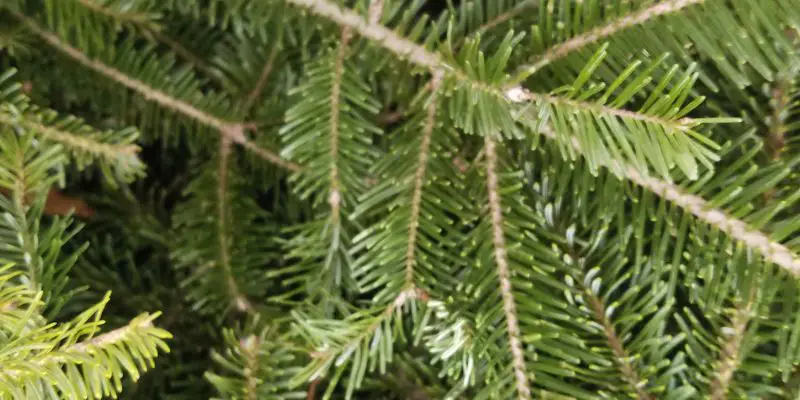Yes, Douglas Fir is highly rot-resistant. It is known for its durability and ability to resist decay.
Douglas Fir, a popular choice in construction and outdoor applications, is renowned for its resistance to rot. It possesses natural protective properties that make it highly durable and resilient against decay-causing factors such as moisture and fungi. With its inherent strength and resistance, it is a favored choice for various projects, from building structures to outdoor furniture.
This remarkable quality of Douglas Fir has earned it a reputation as one of the most reliable and rot-resistant timber species available. Its long-lasting nature and ability to withstand environmental challenges make it a preferred option for those seeking reliable and sustainable wood products.

Credit: www.fs.usda.gov
The Power Of Douglas Fir
Douglas fir is a remarkable and versatile wood that has been cherished for centuries. Renowned for its strength and durability, Douglas fir has earned a reputation as one of the most reliable and desirable building materials available. One of its most notable qualities is its natural resistance to rot, making it an excellent choice for outdoor projects such as decking, siding, and structural applications. In this article, we will explore the fascinating properties of Douglas fir that contribute to its incredible rot resistance.
Natural Rot Resistance
Douglas fir is naturally resistant to rot, meaning that it can withstand the effects of moisture and decay for extended periods without deteriorating. This natural resistance is due to the presence of certain chemical compounds within the wood that inhibit the growth and survival of rot-causing fungi and other microorganisms.
This makes Douglas fir an ideal choice for exterior applications where it may be exposed to moisture, such as in decking and siding projects. It can withstand the elements without the need for additional chemical treatments, providing a cost-effective and environmentally friendly option for homeowners and builders.
Chemical Composition
The rot resistance of Douglas fir is largely attributed to its unique chemical composition. This wood species contains a high concentration of natural compounds known as extractives, which are responsible for its resistance to decay.
One such extractive is dipterocarpol, a compound found in the heartwood of Douglas fir. Dipterocarpol acts as a natural fungicide, inhibiting the growth of fungi and preventing the decomposition of the wood. This compound gives Douglas fir its exceptional resistance to rot and makes it a sought-after material in industries where durability and longevity are essential.
In addition to dipterocarpol, Douglas fir also contains other extractives such as resin acids and lignans, which further contribute to its rot resistance. These compounds create a hostile environment for microorganisms, making it difficult for them to colonize and cause deterioration.
In conclusion, Douglas fir possesses natural rot resistance due to its chemical composition, making it an excellent choice for outdoor projects. Its ability to withstand the effects of moisture and decay without the need for chemical treatments sets it apart from many other wood species. Whether you’re looking to build a deck, install siding, or construct a durable structure, Douglas fir is a reliable and durable option that will stand the test of time.
Factors Influencing Rot Resistance
Douglas Fir possesses natural rot resistance due to its high content of organic extractives, specifically heartwood. These extractives contribute to its durability against decay, making it a popular choice for outdoor construction and marine applications. Additionally, environmental factors, such as moisture levels and fungal activity, can influence the wood’s resistance to rot.
Environmental Conditions
Douglas fir is a strong and durable wood species, renowned for its natural resistance to rot. However, the extent of its rot resistance can be influenced by various environmental conditions.
- Moisture: Excessive moisture can accelerate the degradation of Douglas fir, making it more susceptible to rot. To enhance its rot resistance, it’s important to ensure proper drainage and reduce the amount of moisture exposure.
- Temperature: Extreme temperature fluctuations can impact the rot resistance of Douglas fir. Rapid temperature changes can cause the wood to expand and contract, promoting the growth of microorganisms that lead to rot. Maintaining a stable temperature can help preserve its resistance.
- UV Exposure: Ultraviolet (UV) rays from the sun can deteriorate the surface of Douglas fir, making it more susceptible to rot. Applying a UV-protective finish or regularly staining the wood can help increase its resistance to UV damage.
- Air Circulation: Good air circulation is crucial for reducing moisture buildup, as stagnant air can contribute to rot. Ensuring proper ventilation around Douglas fir structures can help minimize the risk of rot.
Growth Characteristics
The growth characteristics of Douglas fir also play a role in its rot resistance. Here are some key factors:
- Heartwood vs. Sapwood: The heartwood of Douglas fir contains natural compounds, like extractives, that contribute to its rot resistance. In contrast, the sapwood, found nearer to the bark, is less resistant. Utilizing heartwood when using Douglas fir in construction can enhance its durability.
- Density: Douglas fir is a dense wood, which generally correlates with improved rot resistance. Dense wood is less prone to moisture absorption and provides a greater barrier against microorganisms that cause decay.
- Growth Rate: The growth rate of Douglas fir can impact its rot resistance. Slower growing trees often produce denser wood with better durability. When choosing Douglas fir for a project, considering the growth rate can help ensure greater longevity.
Practical Applications
As mentioned earlier, Douglas Fir is renowned for its rot resistance, which makes it highly suitable for a wide range of practical applications. Its durability and strength make it a popular choice in the construction industry, as well as for outdoor furniture and decking.
Construction Industry
In the construction industry, Douglas Fir’s rot-resistant properties make it ideal for structural applications such as beams, posts, and framing. Its ability to withstand moisture and decay adds longevity to structures, contributing to their overall durability.
Outdoor Furniture And Decking
When it comes to outdoor furniture and decking, Douglas Fir is a preferred material due to its natural resistance to rot, mold, and insects. Its strength and aesthetic appeal make it an excellent choice for creating durable and attractive outdoor pieces.
Enhancing Rot Resistance
The natural rot resistance of Douglas Fir makes it a popular choice for various outdoor applications. However, to further enhance its durability against rot, there are treatment methods and innovative preservation techniques available.
Treatment Methods
Different treatment methods can be employed to enhance the rot resistance of Douglas Fir. These methods involve the application of various chemicals that penetrate the wood, preventing rot-causing organisms from thriving.
- Pressure Treatment: This method involves subjecting the wood to high-pressure vacuum chambers, which force the preservatives deep into the fibers of the wood. Pressure-treated Douglas Fir becomes highly resistant to rot, making it suitable for ground-contact applications.
- Surface Treatment: Surface treatment involves applying water-repellent preservatives directly to the surface of the wood. While not as effective as pressure treatment, surface treatment can still provide significant rot resistance when properly maintained.
Innovation In Preservation
Advancements in preservation techniques have led to innovative solutions for enhancing the rot resistance of Douglas Fir.
Borate Treatment: Borate-based preservatives have gained popularity in recent years due to their environmentally friendly nature. These preservatives are highly effective against rot-causing fungi and insects, making them an excellent choice for protecting Douglas Fir.
Modified Wood: Another innovative approach is using modified wood technology, where the Douglas Fir is subjected to a process that significantly improves its rot resistance. This method alters the wood’s cellular structure, making it denser and more resistant to decay.
Conclusion
In conclusion, while Douglas Fir possesses natural rot resistance, treatment methods and innovative preservation techniques can further enhance its durability. Pressure treatment and surface treatment offer effective ways to increase rot resistance, while borate treatment and modified wood technology provide innovative solutions for long-lasting protection. By employing these methods, Douglas Fir can become an even more reliable choice for a wide range of outdoor applications.
Challenges And Environmental Impact
The use of Douglas Fir in construction and outdoor applications is highly valued for its strength and durability. However, there are certain challenges and environmental concerns associated with this popular wood option.
Sustainability Concerns
While Douglas Fir is known for its excellent rot resistance, there are concerns about its sustainability due to overharvesting and deforestation. The increasing demand for this timber has put considerable pressure on forests, potentially leading to negative environmental consequences.
To address these concerns, sustainable forestry practices have been developed. These include responsible and certified logging, reforestation efforts, and the use of timber from well-managed forests. By supporting sustainable wood sourcing, consumers and businesses can help preserve the long-term viability of Douglas Fir as a construction material.
Alternative Materials
As the demand for Douglas Fir increases, some explore alternative materials that offer similar properties while reducing the environmental impact. It’s essential to consider these alternatives when choosing wood for construction and outdoor projects.
One potential alternative is engineered wood products that use smaller sections of Douglas Fir combined with other materials, such as laminated veneer lumber or cross-laminated timber. These products can achieve similar strength and durability while minimizing the amount of timber required.
Another option is to explore alternative species that offer similar characteristics to Douglas Fir. For example, Western Red Cedar and Redwood are both naturally rot-resistant and widely available, making them suitable alternatives for outdoor applications.
By considering these alternative materials, individuals and businesses can reduce the demand for Douglas Fir and promote sustainable practices in the construction industry.

Frequently Asked Questions For Is Douglas Fir Rot Resistant
Does Douglas Fir Rot Easily?
Douglas fir is not prone to rot easily. Its natural resistance to decay makes it a durable option for construction.
Is Douglas Fir Good For Outdoor Use?
Yes, Douglas fir is suitable for outdoor use. It is a durable wood that resists rot and decay, making it ideal for applications such as decking and siding. Its natural beauty and strength make it a popular choice for outdoor projects.
How Long Will Doug Fir Last Outside?
Doug fir can last around 5-7 years outside with proper maintenance. It is important to regularly treat it with preservatives to prolong its lifespan. Regular sealing and protection from water and sunlight can also help extend its durability.
What Wood Is Most Resistant To Rot?
Cedar is the wood most resistant to rot. It has natural oils that act as preservatives, making it highly durable.
Conclusion
Douglas fir is known for its natural resistance to rot, making it an excellent choice for outdoor projects. Its durable nature and ability to withstand harsh weather conditions make it a popular choice for construction. By using Douglas fir, you can rest assured that your outdoor projects will remain sturdy and reliable for years to come.


